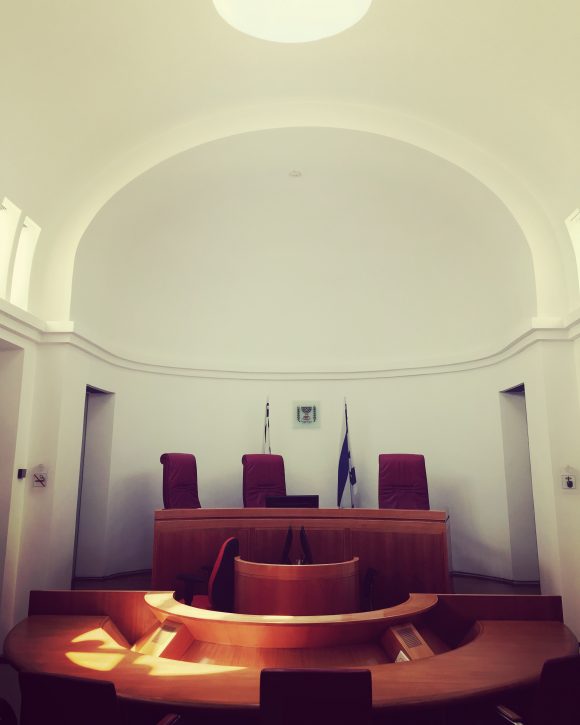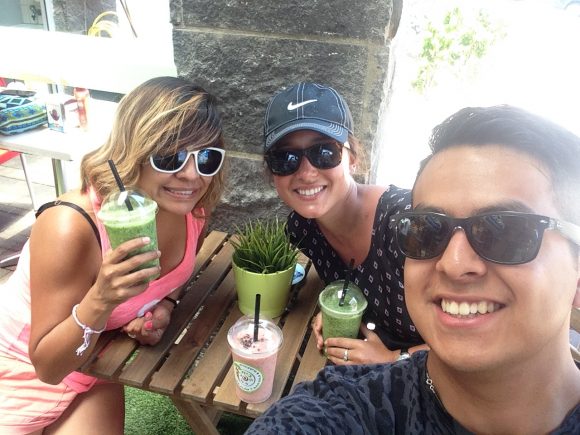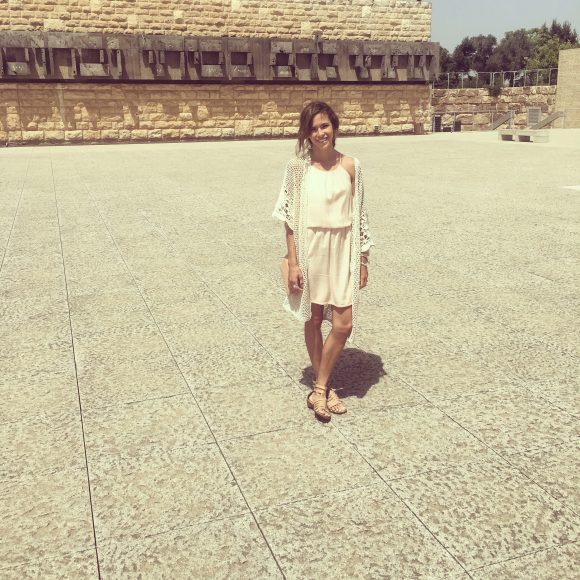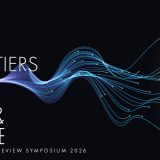
Putting Your Summer to Work With Fowler School of Law Study Abroad
July 18, 2016
One of the many great summer opportunities offered at Chapman University Dale E. Fowler School of Law is access to world-class study abroad programs that offer students a more hands-on perspective of international law. In addition to the annual Cambridge, England study abroad program, students have a chance to take part in unique study and externship programs offered across the globe.
Two such students, Maggie Miller (JD ’18) and Mandi Shaughnessy-Ford (JD ’18), recently wrapped up their stay at Bar Ilan University in Israel, where they had the opportunity to take courses and participate in externships at the state’s parliament.
What interested you in the program?
Maggie: I really love the country of Israel. When I was 10 years old my family went to Poland to tour Auschwitz, the largest Nazi concentration camp in terms of size and lives lost during WWII. The visit to Auschwitz was life altering in so many ways. I studied history during my undergraduate studies mostly due to that visit as a child. I traveled to Israel with my family for the first time 10 years ago and I have wanted to go back ever since. When Professor Michael Bazyler, who is an expert in Holocaust studies, told me about the opportunity to study in Israel I was completely on board!
Mandi: What attracted me to Israel was a deep concern for the welfare of its citizens. I had been following recent events in Israel, and the violence struck a chord in me that I could not ignore. At the same time, the Syrian refugee crisis had peaked and I became increasingly frustrated with how isolated I was from these international issues. There is such a helpless feeling that comes from reading headlines about such atrocities in the comfort of a law school classroom. I approached Professor Bazyler about opportunities to work in Israel for the summer, and he enthusiastically explained this program to me. I knew that even if I could not do anything to fight back against the evil in such a short time, I would gain a better understanding of the situation.
What did the program entail?

Interior of the Israel Supreme Court | Photo courtesy of Maggie Miller
Maggie: I took six courses total, each lasting two weeks in duration. In my opinion, the most fascinating course was International Criminal Law, which dealt with numerous topics, such as war crimes.
I also had an externship with a member of Israel’s K’nesset (parliament). The externship consisted of 50 hours of work for the summer, which is quite favorable in comparison to our requirements in other externship programs. In addition to classes and my externship, the program also included two tour days, the first in Jerusalem and the second in Tel Aviv. On the tours we visited different places, ate, shopped and explored.
Mandi: This program is fantastic because it provides an opportunity to take classes and gain externship experience in one summer. The classes were very different, as the professors have a much more relaxed demeanor. I enjoyed a break from the Socratic method. It was also fascinating to see the world through my professors’ perspective. As citizens of a country declared a state only 68 years ago, their insight provided a valuable opportunity to gain a broader understanding of the world.
In addition to six required courses, I was also involved in two externships; one with the Ruth and Emanuel Rackman Center for the Advancement of Women’s Status, and another with the K’nesset. These projects entailed doing in-depth research on pressing issues Israel faces today.
What is your day-to-day like?
Maggie: A typical day consisted of classes from 9 a.m. to 2 p.m., Sunday to Thursday. After class I usually went to the beach. The weather was hot and the Mediterranean water was clear and warm, and the sand was the softest I have ever felt! The remainder of my day was spent eating a variety of different foods, and then running alongside the Mediterranean Sea in the evening once the temperature cooled down.

Mandi Shaughnessy-Ford (center) explores Tiberias with fellow students | Photo courtesy of Mandi Shaughnessy-Ford
Mandi: When not in class, I was either preparing for the next session, working on my externship projects, basking in the glory of the Mediterranean Sea, or eating hummus and pita bread. My friends and I also spent considerable time exploring Tel Aviv and the surrounding cities. There is so much to do, but not nearly enough time!
Have you had a chance to explore, yet? What’s been a highlight?
Maggie: Each day classes finished around 2 p.m., which left ample time to explore and enjoy Tel Aviv. In addition, we made several visits to Israel’s capital city, Jerusalem. While in Jerusalem, I had the pleasure of visiting the Israeli K’nesset and the Supreme Court, as well as Yad Vashem, Israel’s Holocaust Museum. Yad Vashem takes its visitors on a journey, beginning with the rise of Hitler and the Third Reich, to the beginning and end of the Holocaust, with a consistent focus on the lives lost and those who survived.

Maggie Miller at Yad Vashem
Some of the biographies that moved me the most were those who were not Jewish, but those who chose to rescue and hide those who were Jewish during the Holocaust. Those people went against the grain, risking their own lives; it is difficult to read their stories without having an emotional reaction. For me, these biographies resonated in a profound way; these are the heroes we should emulate in life, not the images and lifestyles that U.S. pop culture promotes. The visit to Yad Vashem was one of the most humbling experiences of my life and I have a new gratitude for freedom in America. It is my opinion that in spite of our differences in political and social reform, prejudices, and our own poverties, America is still the most fortunate of countries.
A final observation: when a lot of people think of Israel, they think of war; a clash between two peoples and cultures. However, Israel is a relatively safe country. Muslims and Jews successfully coexist here every day in Israel. The majority of people choose to live in peace, working together daily in community life, contrary to the images that the media tends to portray. This has been one of my great discoveries in Israel, and also one of the many reasons why I have come to love it.
Mandi: Another selling point of this program are the built-in tours! In lieu of a class session early on, our group toured Israel’s Supreme Court, the Holocaust Museum and the Old City in Jerusalem. There were so many highlights. The Supreme Court was fascinating because it operates quite differently than our Supreme Court in significant ways. The Holocaust Museum not only horrified me by the level of depravity exhibited throughout the museum, but humbled me knowing I will never have to experience that sort of terror. That experience put my life into perspective, making my own worries so trivial. The tour of the Old City had a very spiritual significance to me. As a devout Christian, it was unparalleled to walk on the same ground that the feet of my Savior touched.
The Old City was fascinating because it was separated into four quarters; the Jewish, Muslim, Armenian and Christian quarters. It was amazing to walk through each quarter and experience the different cultures in such a short time. Of similar importance: I had my first and best falafel!
This program has been one of the most meaningful experiences of my life. I have learned some Hebrew (emphasis on “some”), immersed myself into a foreign culture, and gained an international understanding that could not be learned in the United States.
Learn more about Fowler School of Law

